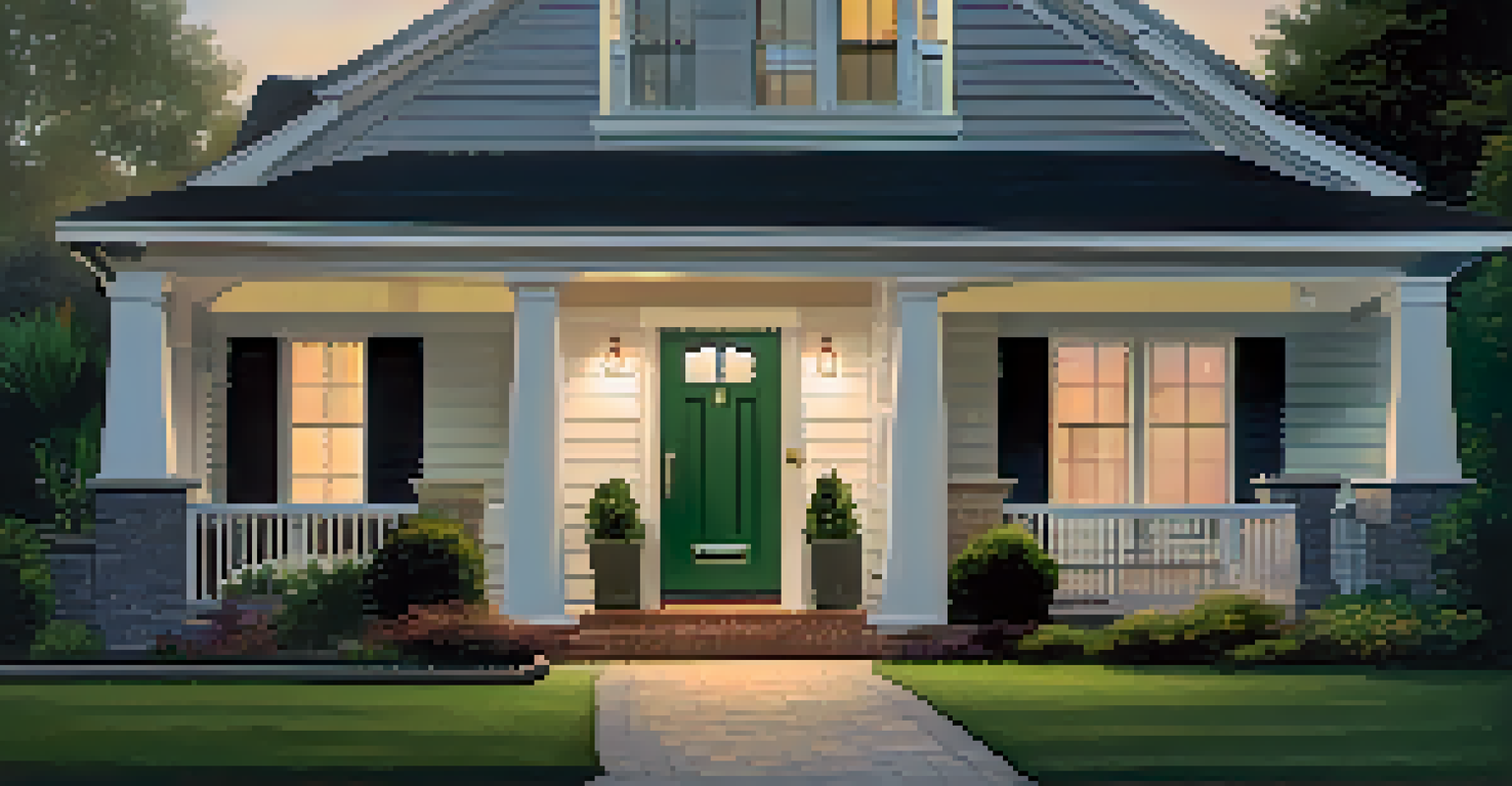How to Choose the Right Home Security System

Understanding Your Home Security Needs
Before diving into the world of home security systems, it's essential to assess your specific needs. Consider factors like the size of your home, the number of entry points, and the level of security you desire. A small apartment may require a different approach compared to a sprawling house.
The best way to predict the future is to create it.
Think about your lifestyle as well. Do you travel frequently? If so, a system with remote monitoring capabilities might be a priority. On the other hand, if you have a busy household, a system that integrates with smart home devices could provide added convenience.
By understanding your unique situation, you can tailor your search for a security system that fits like a glove. This personalized approach not only enhances your peace of mind but also ensures that you’re getting features that will be genuinely useful.
Researching Different Types of Security Systems
There are several types of home security systems available, each with its own set of features and benefits. For instance, wired systems often offer reliability and stability, while wireless systems provide flexibility and easier installation. Knowing the pros and cons of each can help you make a more informed choice.

Consider also the growing popularity of smart home security systems, which integrate with your existing smart devices. These systems can offer advanced features like video surveillance, smart locks, and motion detectors, all controlled from your smartphone.
As you research, make a list of systems that catch your eye. This will help streamline your decision-making process and ensure you explore all the options before settling on the right one for your home.
Evaluating Security Features and Options
Once you have a shortlist of systems, it’s time to evaluate their specific features. Look for essential components like motion detectors, door/window sensors, and cameras. You might also want to consider additional features such as glass break sensors or smart lighting.
Security is not a product, but a process.
Some systems offer professional monitoring services, which can provide an extra layer of security. This means that if an alarm is triggered, a monitoring center will be alerted and can contact authorities on your behalf.
Think about your priorities—do you want a system that offers comprehensive monitoring, or are you more interested in basic features? This reflection will help you narrow down your choices effectively.
Setting a Realistic Budget for Your System
Budgeting is a crucial step in choosing a home security system, as costs can vary significantly based on the features and services you select. Determine how much you’re willing to spend upfront and consider ongoing costs, such as monthly monitoring fees.
Remember that while it may be tempting to go for the cheapest option, investing in a quality system can pay off in the long run. Think of it as a safety net for your home and family, where quality often trumps price.
A good practice is to compare several systems within your budget, looking for the best balance of features and affordability. This way, you can ensure you’re making a sound investment.
Checking Reviews and Ratings of Systems
Before making your final decision, it’s wise to read reviews and ratings from other customers. Websites like Consumer Reports and dedicated security forums can be goldmines of information, helping you gauge the reliability and effectiveness of different systems.
Look for feedback on user experiences, installation processes, and customer service interactions. Real-life testimonials can illuminate aspects of a system that may not be evident from product descriptions.
By researching user experiences, you’ll be better equipped to choose a system that aligns with your expectations and needs, ensuring that you’re making a choice backed by the community.
Understanding Installation Options Available
Installation is another factor to consider when selecting a home security system. Some systems require professional installation, which can add to your overall costs, while others offer DIY installation options, appealing to those who prefer hands-on projects.
If you opt for a DIY system, ensure that it comes with clear instructions and support resources. Good manufacturers will provide helpful guides or online videos to assist you with the setup process.
Ultimately, choose an installation option that fits your comfort level and your schedule, ensuring that you're not overwhelmed during setup and can start enjoying your new security features as soon as possible.
Considering Customer Support and Warranty
Quality customer support can make a world of difference when it comes to home security systems. Investigate what kind of support is available from the manufacturer or service provider, whether it's 24/7 assistance, online chat, or phone support.
Additionally, check the warranty details. A good warranty can provide peace of mind, allowing you to feel secure in your investment. It’s wise to understand what is covered and for how long, as this can save you money in case of issues down the line.

A reliable system backed by strong customer support ensures that you have help when you need it, making your home security experience much smoother and more reassuring.